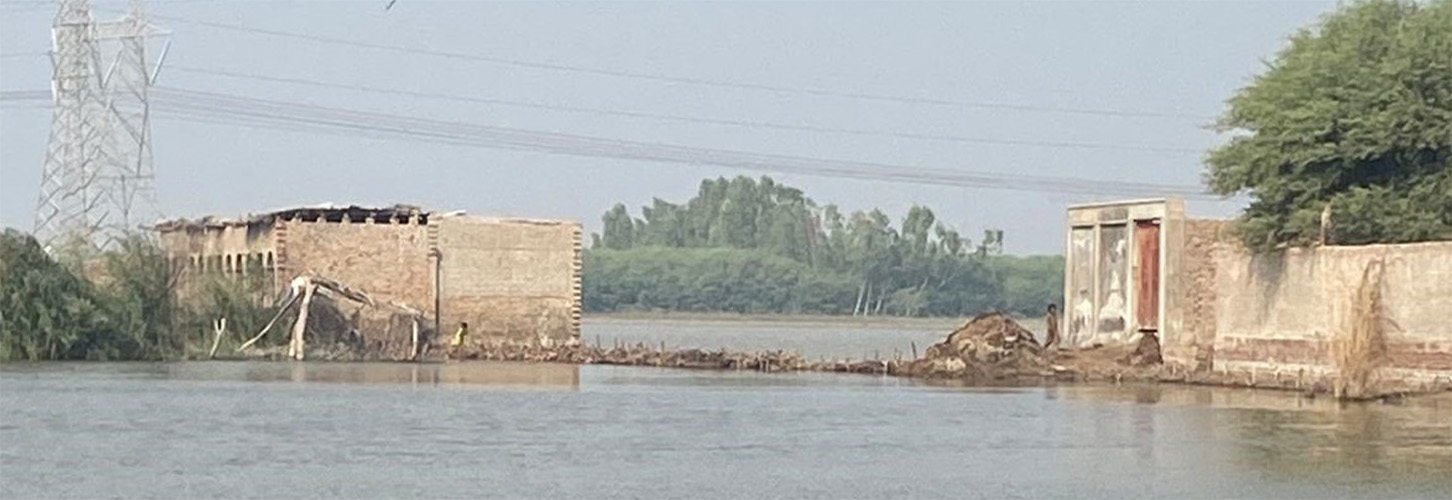Integrity Insights: Visualising Emergency Flood Response in Pakistan
As part of our work on health and family planning in Pakistan, Integrity recently produced a series of high impact visualisations and short narratives highlighting the impacts that the devastating floods have had on access to health services. Here Katie Bigmore (Project Director) and Pamela Sequeira (Team Lead) on our Pakistan health project, share how visualising carefully curated information provided vital evidence for our client to quickly engage with and better respond to the health needs.
Emergency flood response in Pakistan
In 2022, floods in Pakistan affected more than one-third of the country and displaced 33 million people. Children, women, including pregnant women, and older people bore the brunt of the disaster as 13,000 people were injured, and 2.2 million homes and nearly 2,000 health facilities were damaged across 94 districts.
Integrity, together with its partner Research and Development Solutions, is the Third-Party Validation and Monitoring lead for DAFPAK, the UK Foreign, Commonwealth and Development Office (FCDO) £90m, multi-year investment into family planning across Pakistan. In response to the floods, DAFPAK pivoted its funding to provide emergency health, family planning and maternal and child health services specifically to vulnerable women and children. The implementing partners under DAFPAK, namely Marie Stopes International (MSI), DKT International, and Population Services International (PSI) set up medical camps across the country, while Palladium and the United Nations Population Fund (UNFPA) worked with Pakistan’s government departments of Health and Population Welfare. M&C Saatchi supported a behavioural change communication campaign – directly engaging clients in medical camps, and through television, radio, and social media campaigns.
Our role
To support the British High Commission (BHC) in Pakistan’s efforts to respond to the floods, Integrity conducted two assignments:
- Regular monitoring of DAFPAK partners response to the floods. This entailed providing updates on where partners are delivering services, on the number and types of medical camps supported, plus the range of family planning, RMCH and emergency health services provided and the numbers of beneficiaries reached by the programme. The monitoring has been updated periodically to track the response over time.
- Research to examine the effects of the floods on sexual and reproductive health services for women in the most severely affected districts. This entailed mixed methods data collection, including community level interviews with women and adolescents girls at the medical camps to obtain information on access and barriers to receiving family planning and maternal care services in flood affected areas. The research identified the strengths and limitations of the crisis response and recommended actions.
Visualising our unique insights
Integrity’s work gives us unique insights into the successes and challenges that partners face in delivering family planning services in times of crisis. Using the data collected from the camps and reports shared by partners Integrity was able to undertake an analysis of what has worked well and what needs further action. To communicate the findings to a wider audience, the project team collaborated with our in-house graphic designers to produce two succinct publications visualising key facts and figures. These have been used by the BHC Pakistan and DAFPAK programme and shared with the MoH and other stakeholders engaged in health. They are:
Ahmed Jawad, Senior Manager, Services, leads Integrity’s DAFPAK work in Pakistan. He said: “Design allows us to convey ‘more with less’ and ensures products are not replete with blocks of text. Content is easily accessible and more digestible, and we see the client become more actively engaged.”
Dr Sara Shahzad, Health Adviser and the Senior Responsible Owner (SRO) of the DAFPAK programme said: “The flood infographic is really appreciated by senior managers in FCDO as it made the findings easier to share. The use of infographics allowed them to easily interact with the relevant information as the data was readily available at their fingertips – this was much appreciated by our senior management.”

